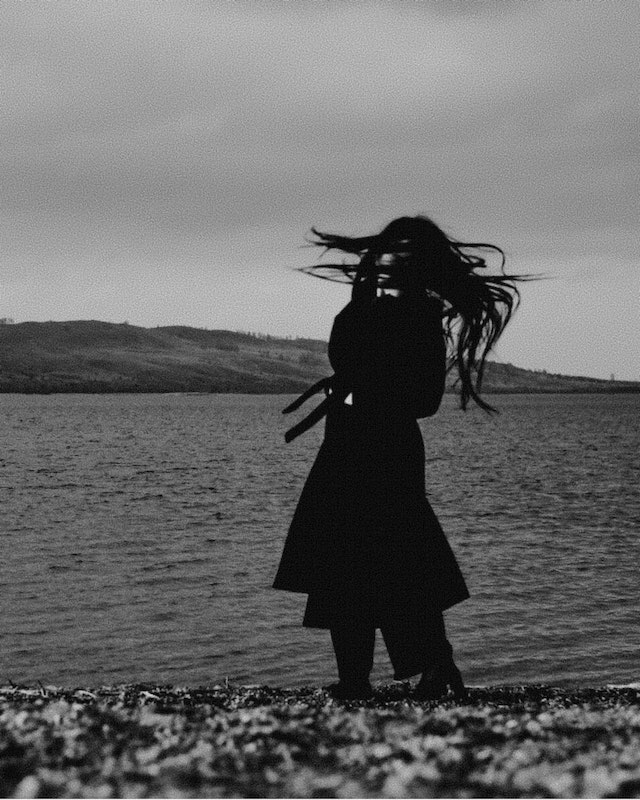
There are two reasons why I decided to write an article about hearing loss; the first reason is that it’s often overlooked, and the second reason is that nobody listens.
We don’t have to wait until World Hearing Day (3rd of March) to talk about it, because, you know, people who are hard of hearing are hard of hearing every day of the year and for the rest of their lives, not just on this day of the year.
I hope my article changes that at least a bit—for all of us who aren’t heard. I would like to change the way the world chooses to see us—or not see us at all. This is for every single person in this world who feels forgotten—just like the sounds and speech one can forget when not treated early enough.
We may look like we blend in, but we really don’t. Not that we don’t, we can’t. And at the end of the day, we probably don’t want to either.
It’s a loud world we live in, and more often than not, other topics run over this one, so it often feels like we are shouting into nothing. We are shouting into one big black oblivion that doesn’t even have an echo.
According to Forbes statistics 1.5 billion people worldwide are currently affected by hearing loss.
The number is concerning, and on top of that, it won’t stop here. It will rise rapidly, and this is also one of the reasons why I find spreading hearing loss awareness significantly important.
We’re talking about an invisible disability that walks mysteriously around us, and after all—or most importantly—our everyday struggle and our whole life depends on a good portion of communication. Or let me put it this way—our survival depends on it.
Several years ago, I used to be just like the rest of you who hear perfectly fine—or anywhere close to it. My life took place at high altitudes and I was my good old self having an answer to every little question—even semi-question—that was thrown my way. I was prepared for nearly anything to say at least. Nothing could stop me and nothing could scare me enough. I had the world in the palm of my hand. It was just me, the suitcase, and the road beneath my feet.
I felt completely myself—until I didn’t anymore.
One moment you are having the time of your life in your mid-20s, preparing yourself to take off, when suddenly something invisible pulls you back; it almost feels like someone knocked on your door and tells you: “I’m sorry, but you can’t be yourself anymore. We are having another position for you.”
There was no agreement to sign for, no mitigating circumstances. Just this new pair of shoes you didn’t know how to tie.
What clothes do I put on with these? How to behave? Are we still allowed to laugh?
Is this still me?
What people don’t understand quite well is that we don’t fix things magically when wearing a hearing aid. There’s more to that than just that. We don’t hear with our ears; we hear with our brain. They decide how much we hear or how much we don’t hear.
Speaking for myself, I lost a hundred percent of my hearing in total, and I struggle with sensorineural hearing loss, which means I don’t always hear the right words even when using a hearing aid. It’s a bit more complex than just: “Cool, so you can hear us now! The case is closed!”
Sensory receptors in the brain are damaged, resulting in distorted sound. Sometimes that leads to even bigger chaos than one would expect.
According to Forbes Deafness and Hearing Loss Statistics in 2023 “approximately 13% of adults aged 18 and older experience some difficulty hearing even when using a hearing aid.”
In a simple language that would mean the words don’t get interpreted correctly. They don’t reach your brain like they reach the brain of someone who hears normally. Pretty sensational, isn’t it? Imagine yourself watching a movie in a language you don’t understand, and there are no subtitles attached. Imagine going to work, to a grocery shop, or to meet someone important, and this same thing happens to you.
This is where the word lost hits entirely differently. Doesn’t it?
It’s kind of tricky, our brains. Sometimes you hear people talking; they can be standing only a few meters away, but you can’t make out the words. It’s especially hard when the extrovert within you wants to come out and chat a little, but she’s trapped inside. She’s slowly but surely changing into an old introvert closing the doors to the world.
All you need after a long day of loud noises is silence. When did something that has always seemed like a fun thing to do become such a hard thing? Is it the humans who are getting difficult, or is it we the hard of hearing who are drifting away from the rest of the world on the Fowler scale?
Out of all the jobs I had, being myself was by far the hardest one when I became the person with a hearing aid.
It still is sometimes, to this day.
From early childhood, I knew exactly where I was heading to. I hid my dreams from everyone except from my family and a few close friends, because I believed all the wonderful things happen in silence. In the movie “Finding Neverland,” J. M. Barrie said:
“You find a glimmer of happiness in this world, there’s always someone who wants to destroy it.”
Then “bam!” one day, I was offered this new position I couldn’t fulfill. Hearing loss? Did I hear that right?
I kept a round-the-world ticket in my pocket that I couldn’t redeem. An airline on the other side of the world offered me a golden ticket to the show of a lifetime, but suddenly that wasn’t my show anymore. I wanted it so badly, but in the end, my jump seat was left by no-show. The ticket I had was from someone else—and that other person no longer existed. I was waiting at the terminal from which no plane would take off.
The shoes I got served were too big. I felt completely and utterly incompetent for this job. Trust me, no one works harder than someone who isn’t sure they heard you right the first time. When you battle hearing loss, you become the strictest boss you ever worked for.
It’s hard to be hard of hearing; it’s even harder to accept the new reality, but perhaps the hardest thing is being left without a single explanation. That’s what keeps eating you the entire time. All the possible what-ifs.
They say being nice to others and harsh to yourself is a trauma response. I say being nice to others is our fundamental duty, no matter what we have been through.
Just like John Malkovich in the movie “Being John Malkovich” stepped into someone else’s head, I stepped into someone else’s shoes. I was like a puppet wearing shoes a few sizes too big, but when I dived into this little imaginary world, I could be anyone. Anyone but me.
Creating our own world inside the great one can be essential for all of us sometimes and can have a positive impact on our lives. Even if you’re not a creative soul, even if you don’t write books. Even if you are still able to hear the real world.
Imagination makes this whole life a better, nicer place. If you believe children’s books are written just for children, you will forever be lost. Peter Pan wasn’t lost; he found his way to fly away.
At some point in life, children’s books help us find small things that will lead us to great realizations. They point us in the right direction like no other guide to a happy life for adults. It’s the simple things we crave the most. A smile, rain drops falling on the window, soft eyes on our dogs that wake us up.
In order to be able to get to know the new person I was becoming, I had to un-become everything I had created in the first 25 years of my life. I had to forget her in order to welcome and befriend the new me.
Maybe life isn’t about finding yourself. Maybe it’s losing yourself at some point to be able to create what you were supposed to become in the first place. Maybe the first part of your life starts on the day you were born and ends with some kind of breaking point, and after this point, it is all about un-becoming your first self so that you can finally start becoming your true self. You create your true self, not the day when you were born. And that breaking point my dear is where the real freedom begins.
Similar to what Elizabeth Kubler-Ross, an American writer and psychiatrist, said about getting over a loved one who has passed away, can be said about getting over a hearing loss:
You will never get over it, you will just learn to live with it. You will be put together with something that’s called hope, but you will never be the same again.
“Nor should you be the same nor would you want to.”
You will forever grieve for something you lost, and you have every right to.
~
Please consider Boosting our authors’ articles in their first week to help them win Elephant’s Ecosystem so they can get paid and write more.








Read 8 comments and reply